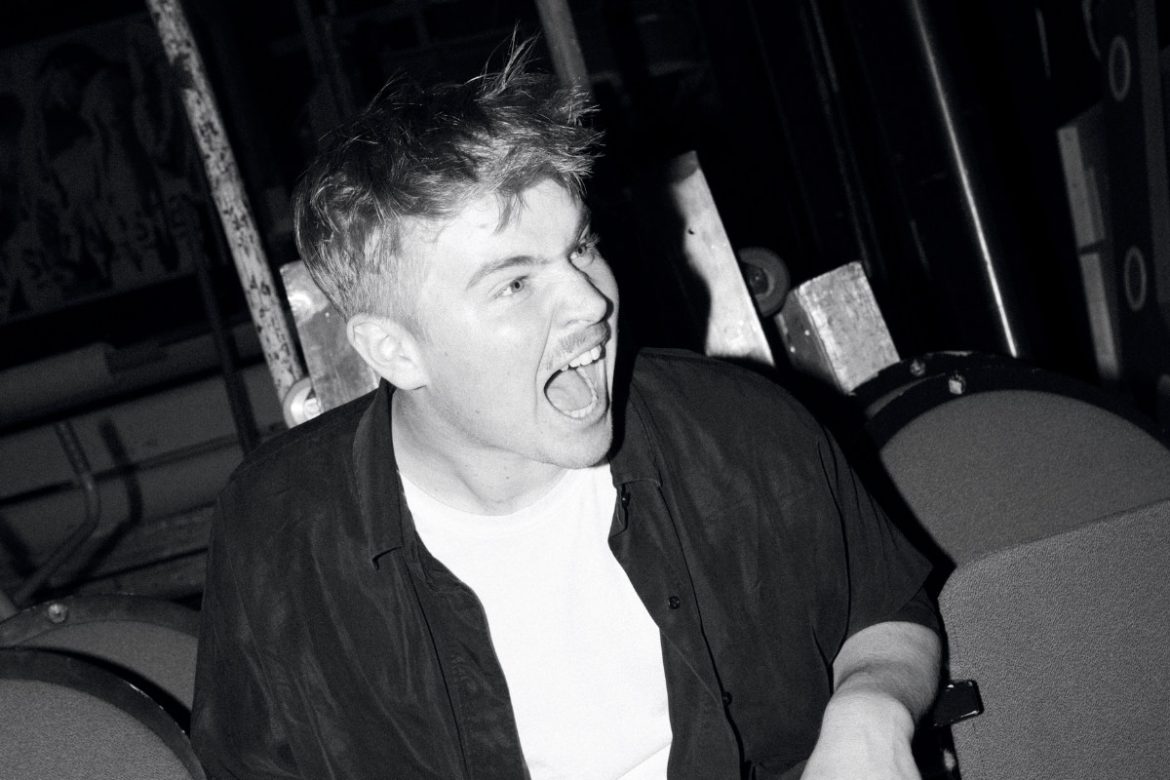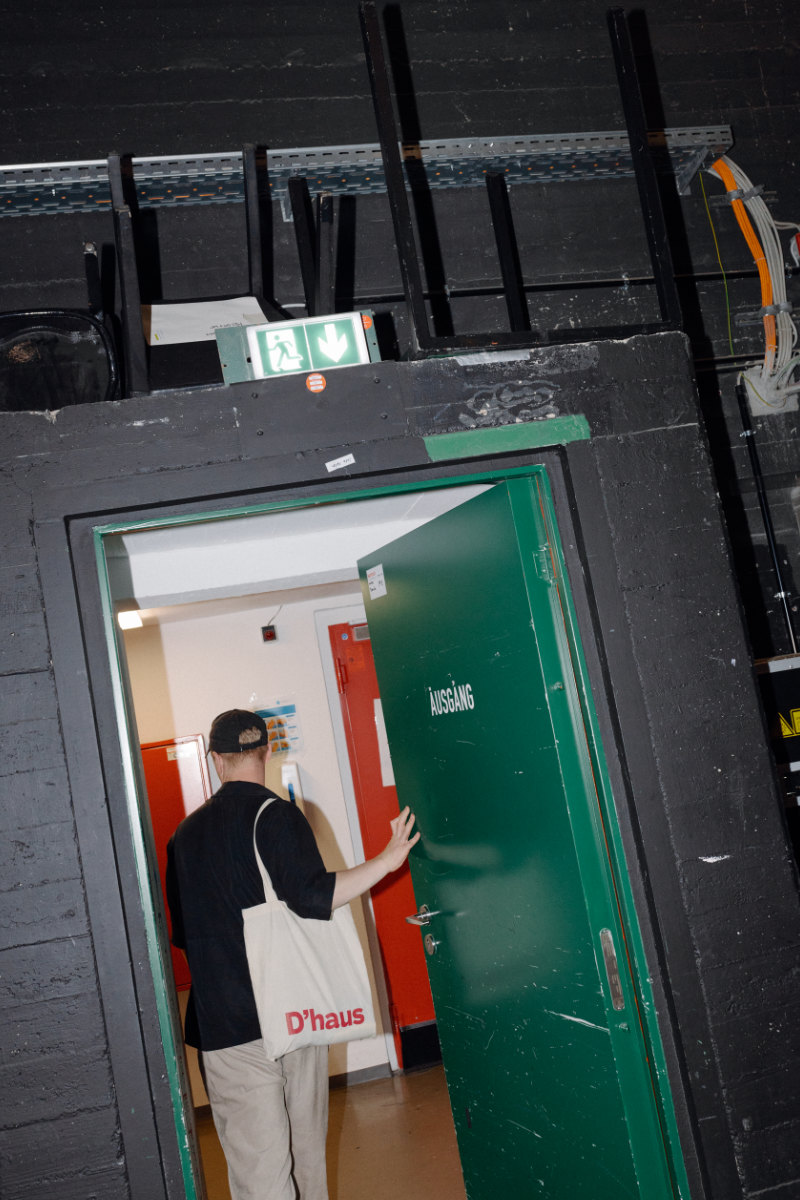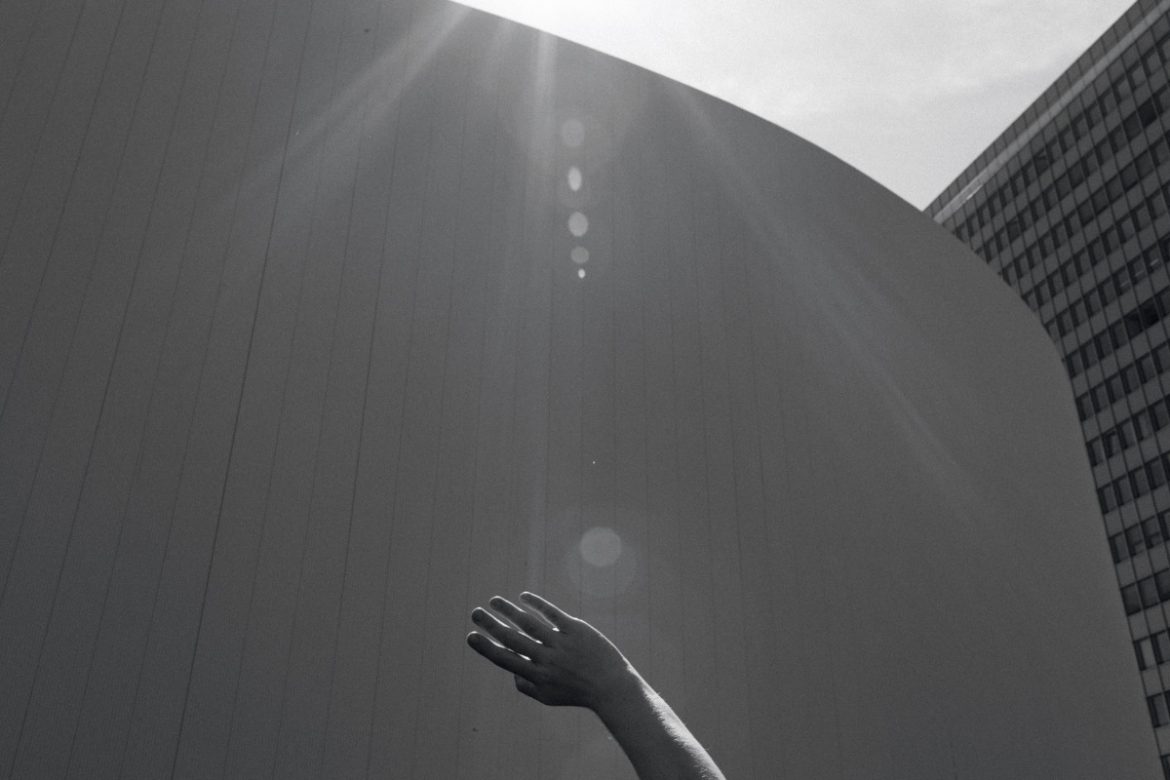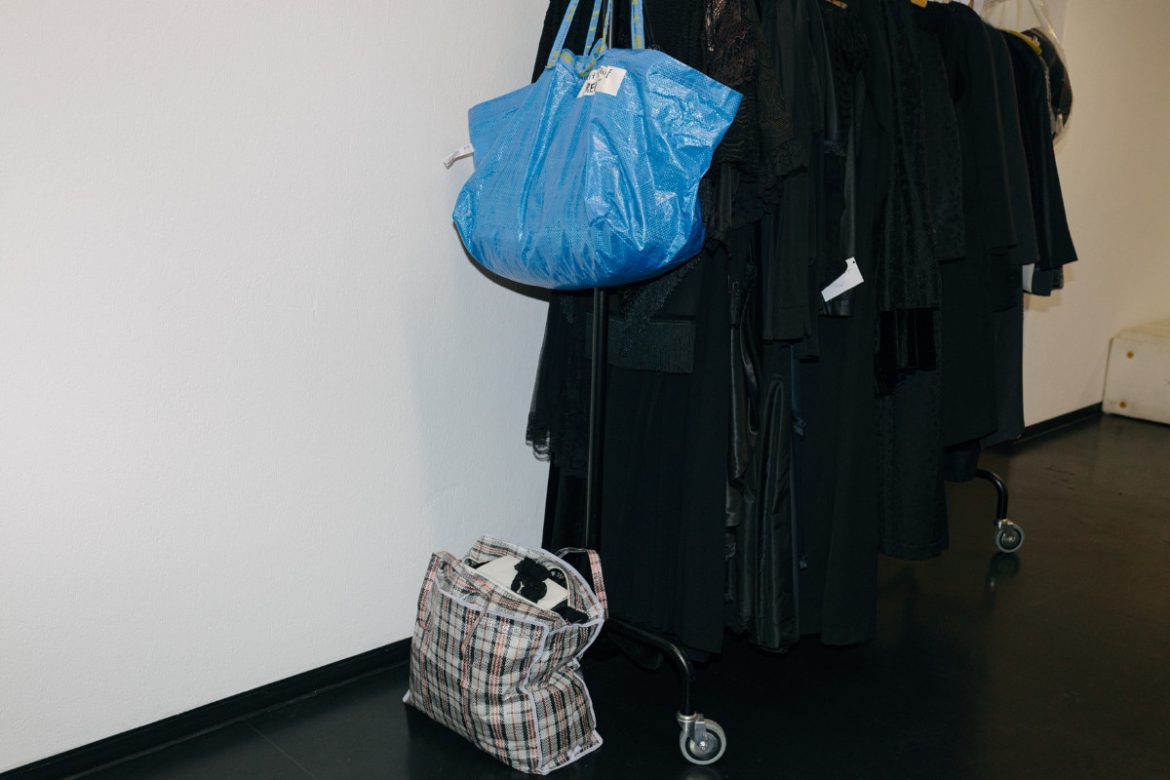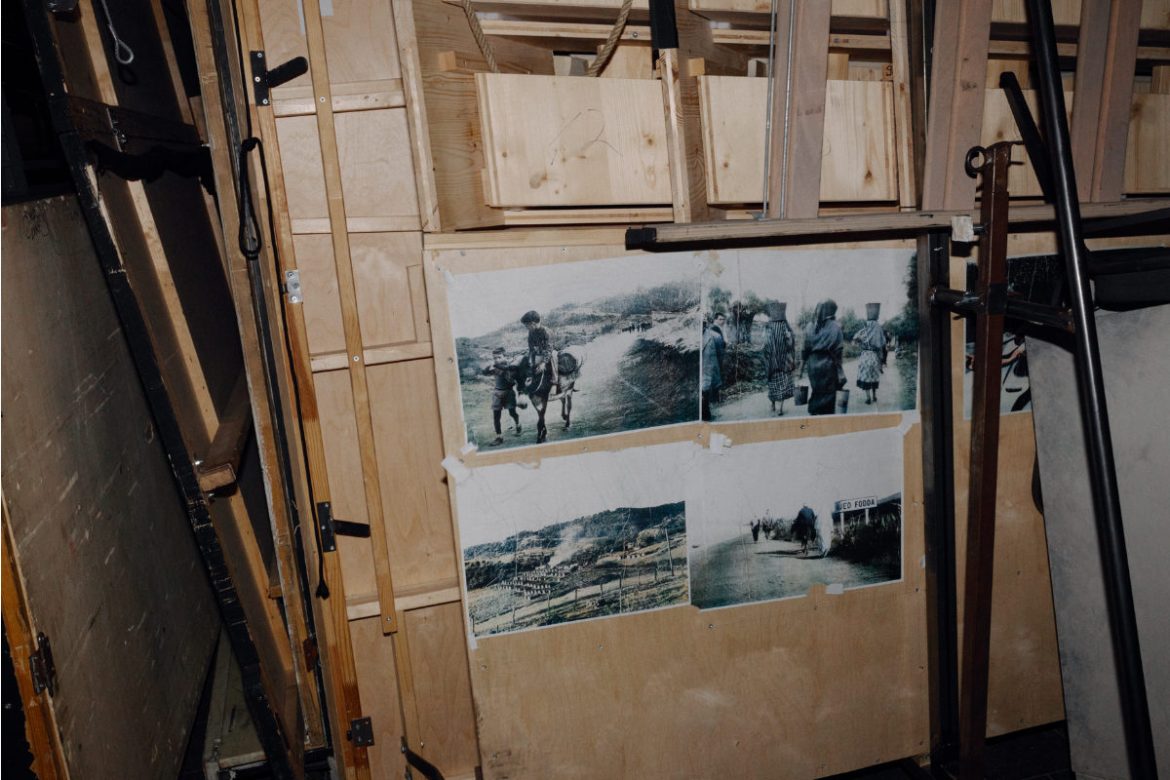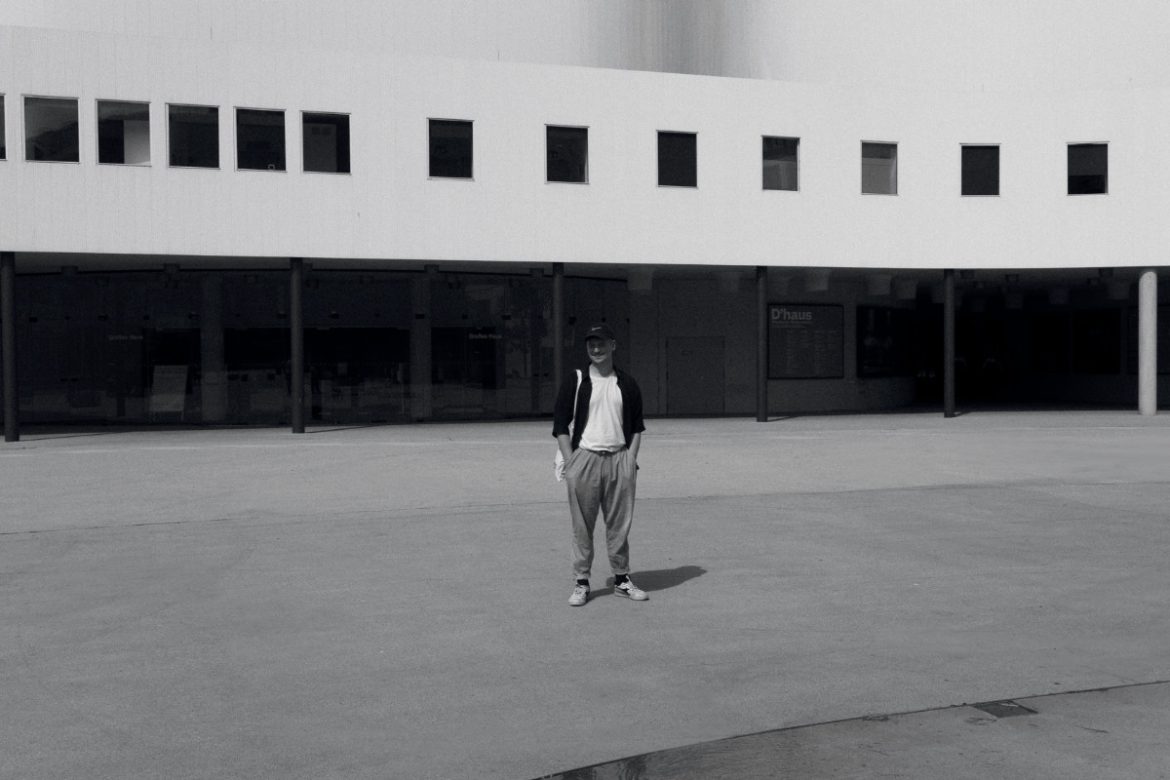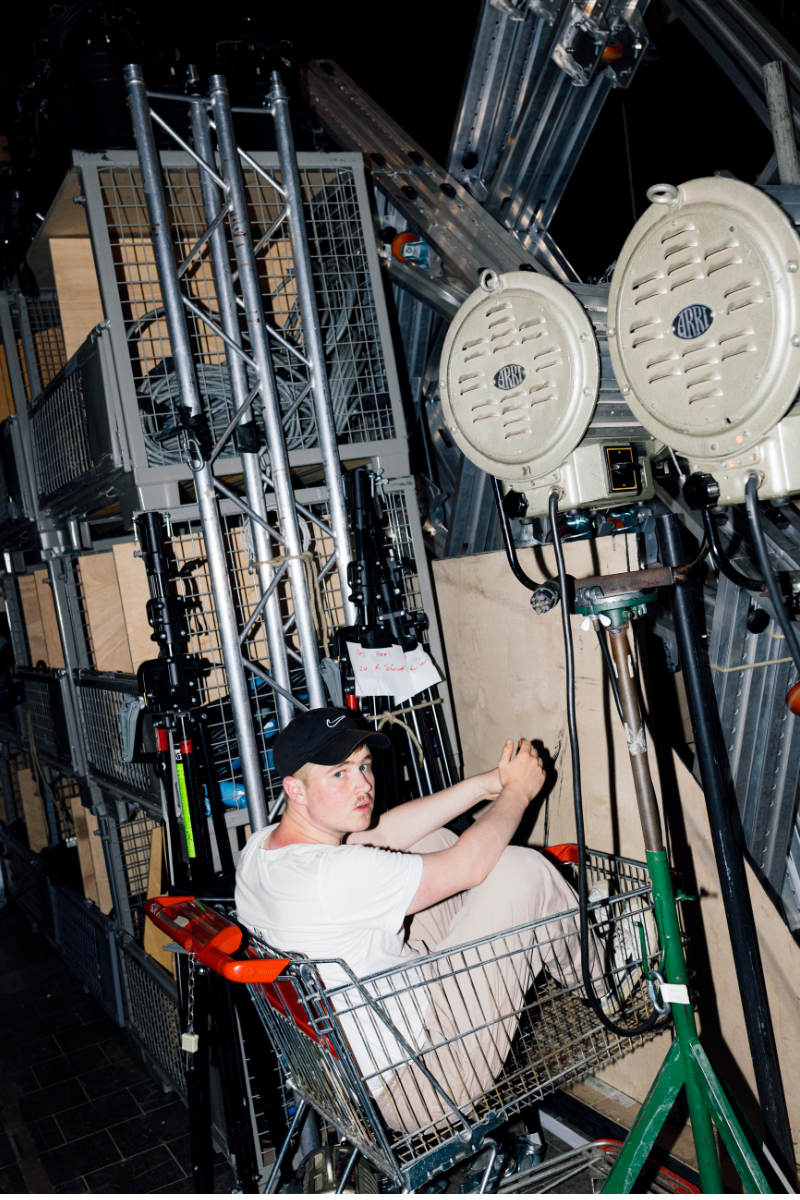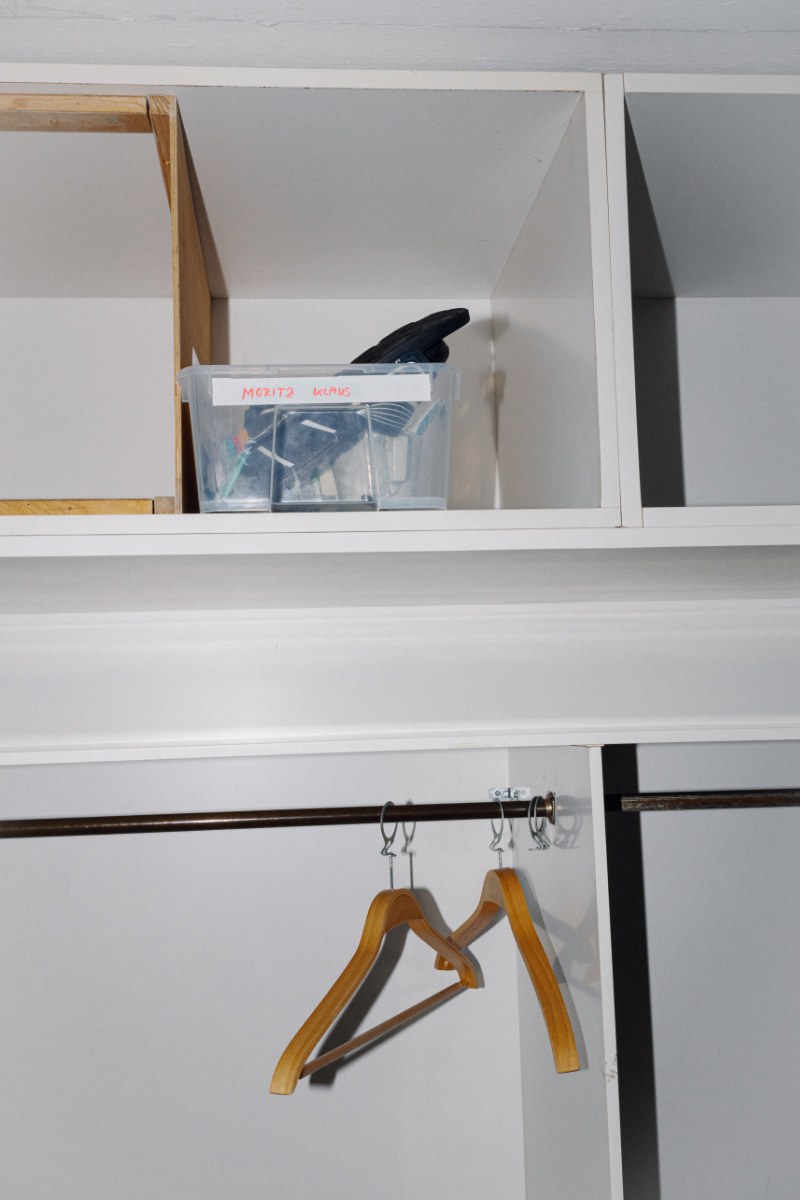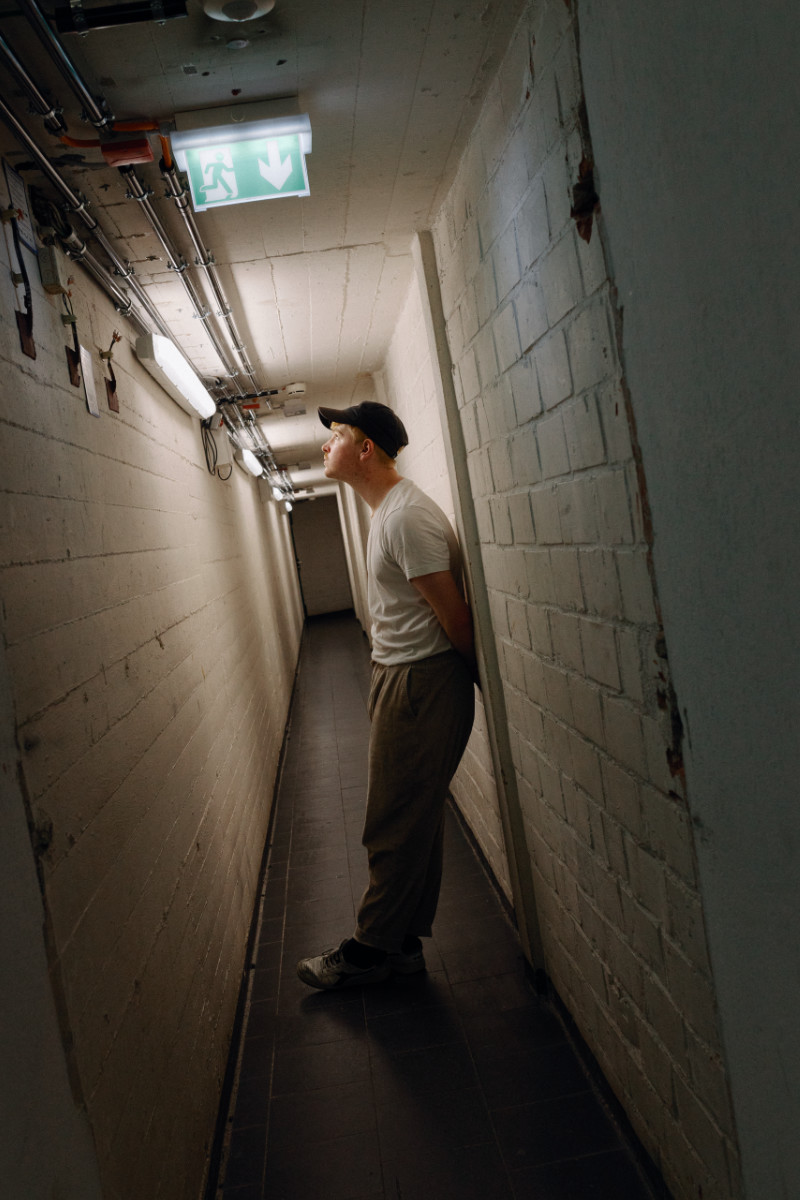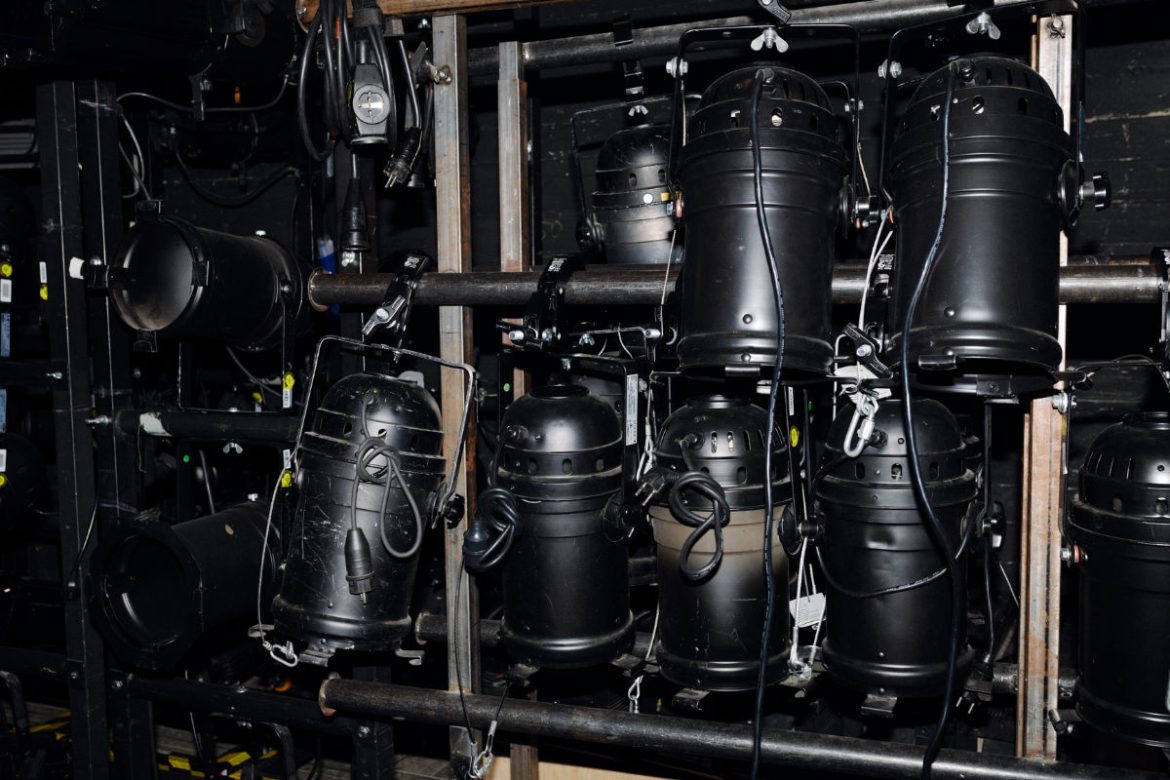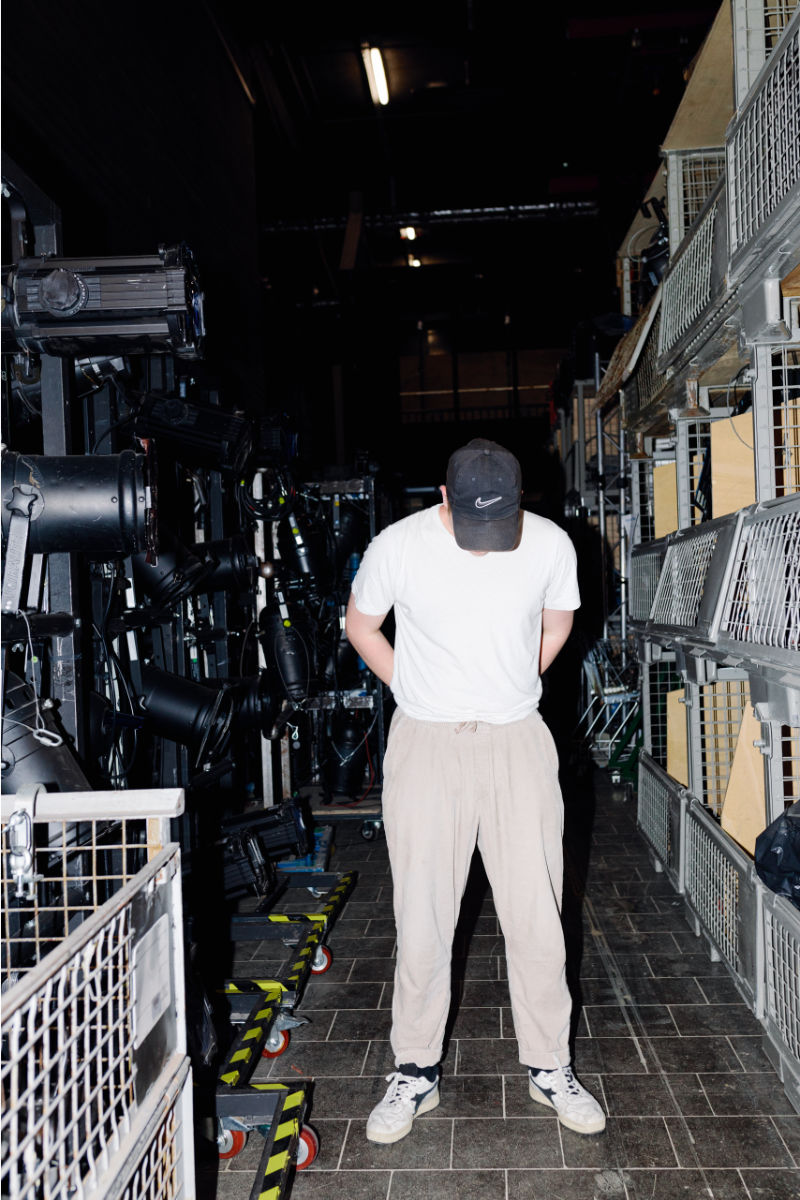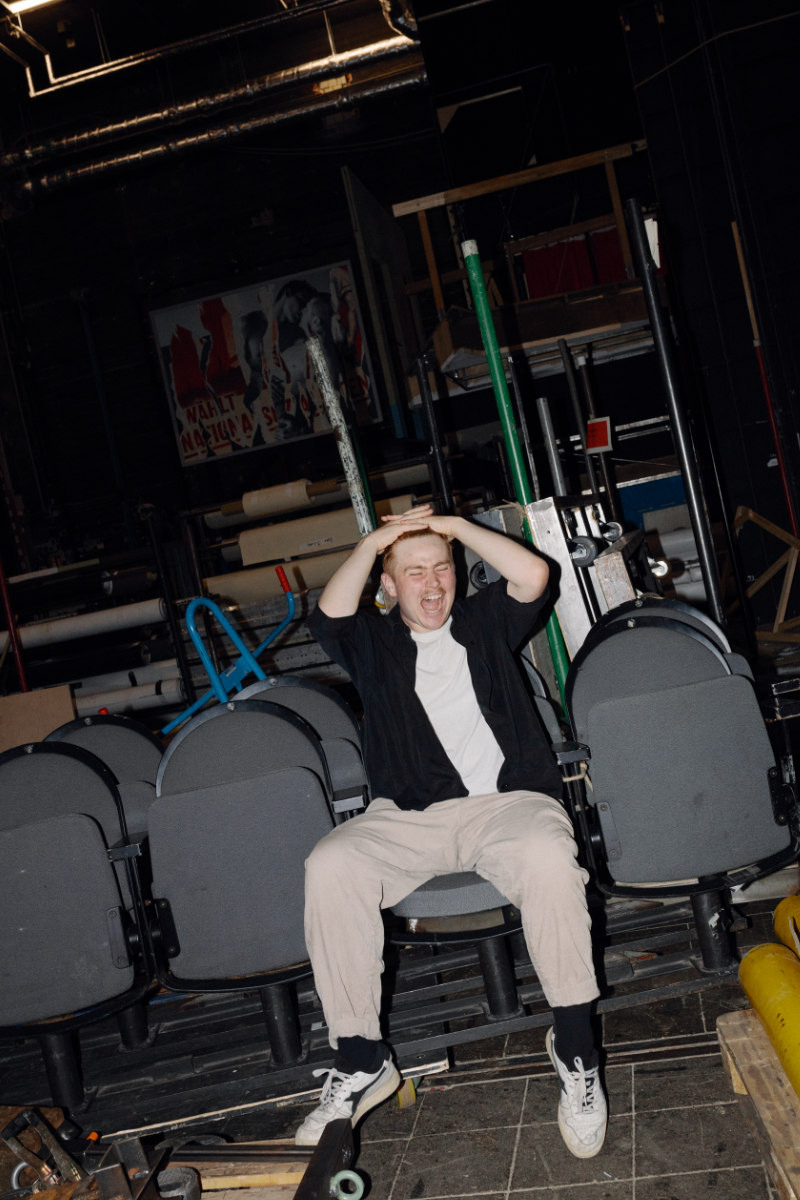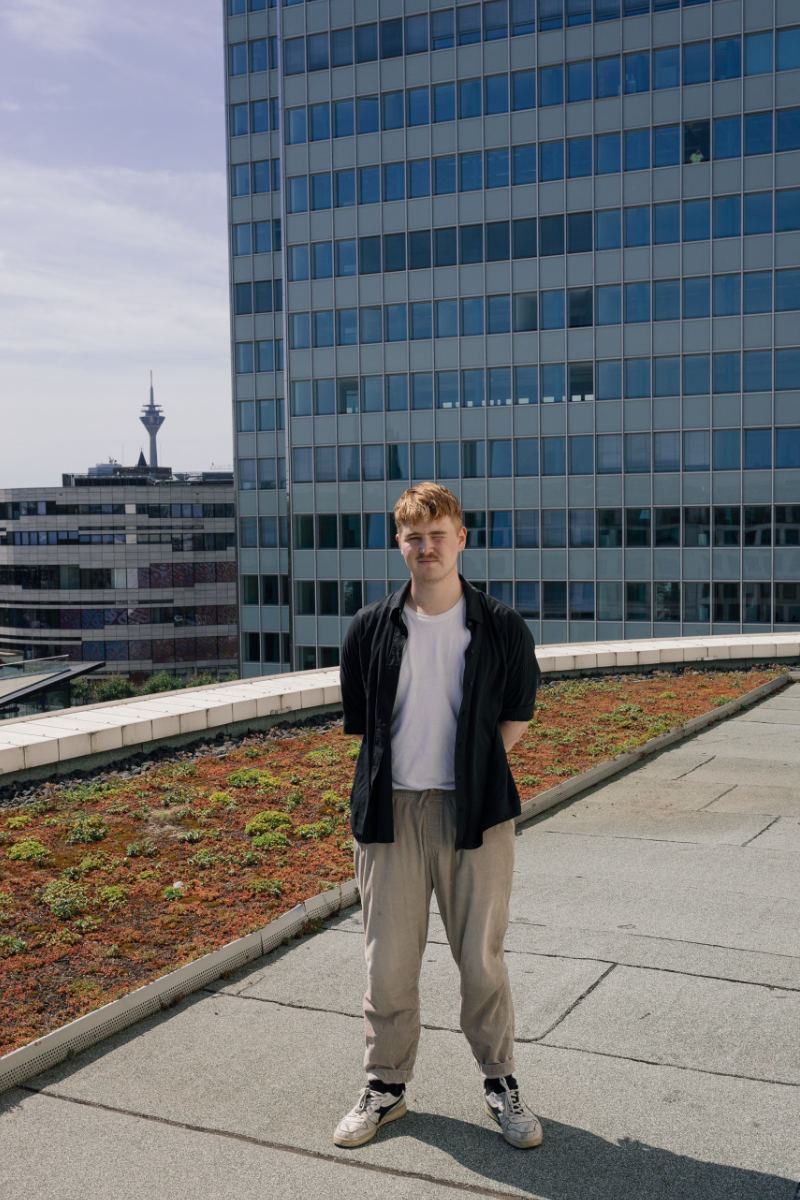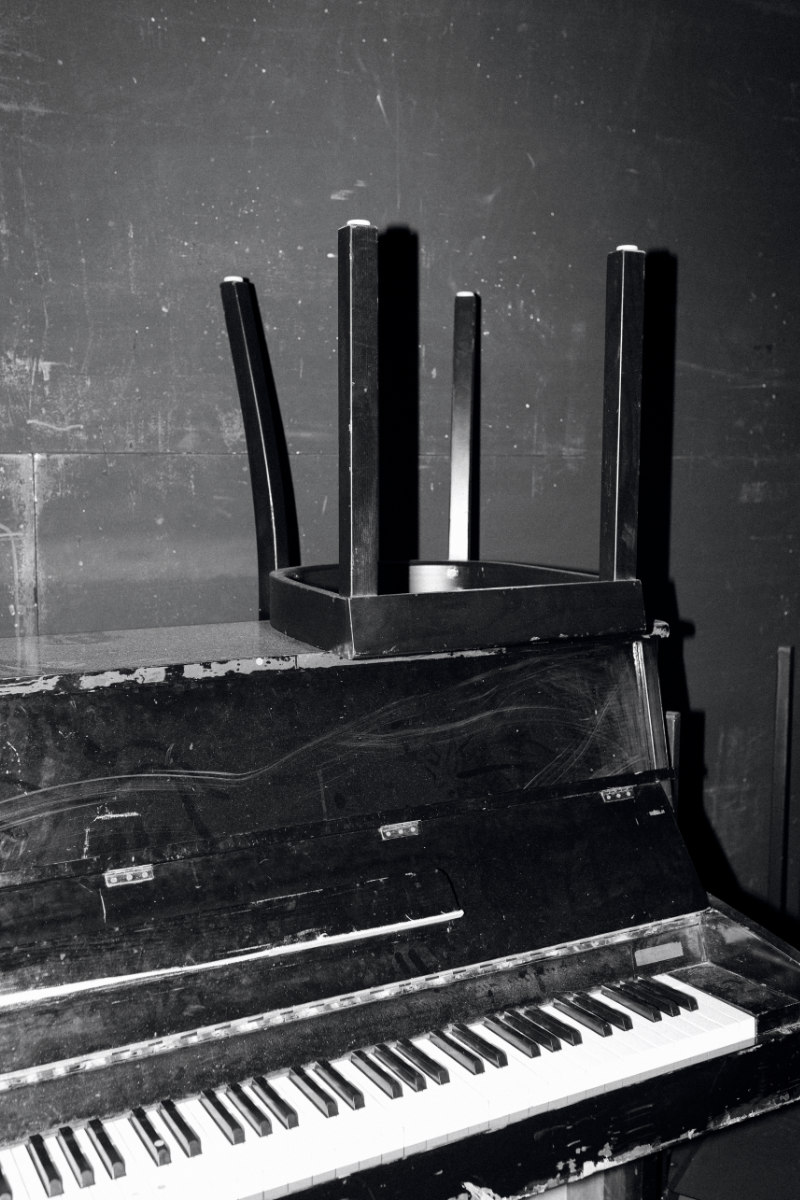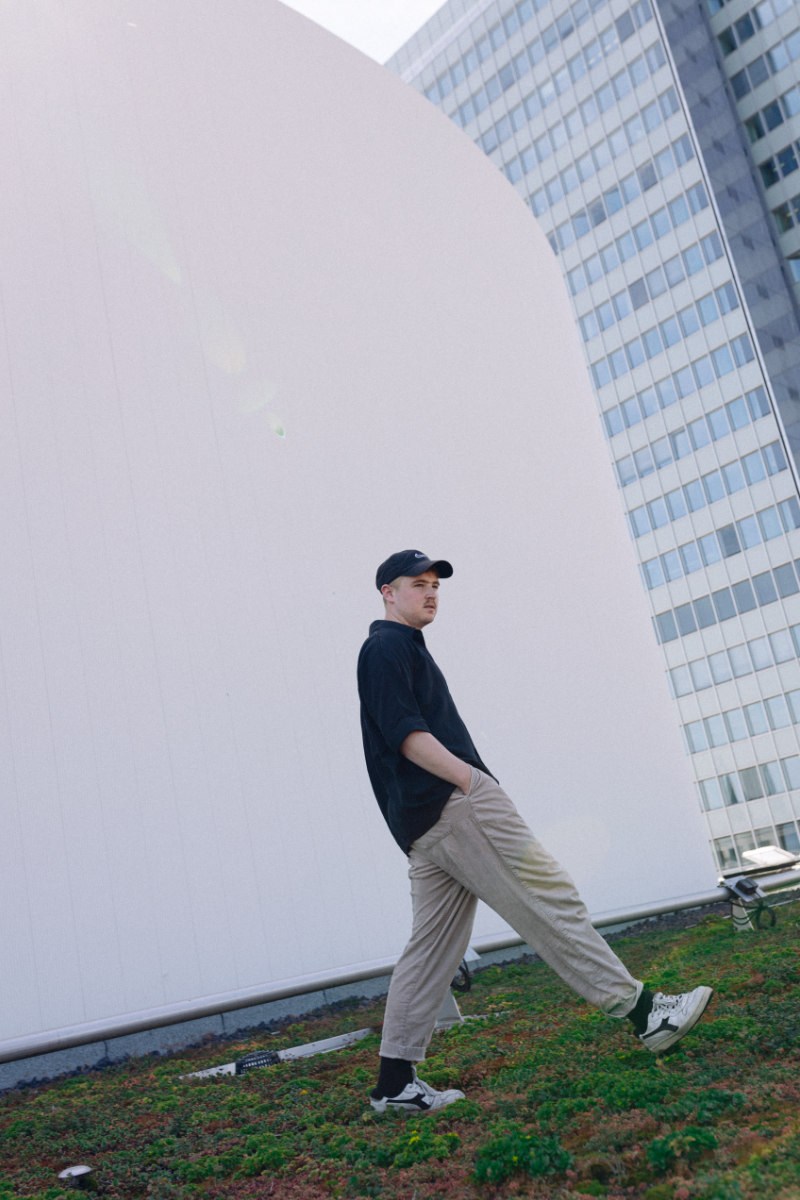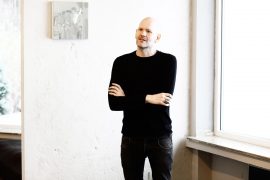Mit sieben spielte er seine erste Rolle. Nach nur drei Vorsprechen bekam er einen Platz an der Schauspielschule. Mit vier Oscars wurde sein Kinodebut ’Im Westen nichts Neues‘ ausgezeichnet. Moritz Klaus kommt frisch aus der Schauspielschule und legt einen Karrieresprint hin. Ein Segen, dass sich der 24-Jährige erstmal im Düsseldorfer Schauspielhaus angekommen fühlt, zu dessen Ensemble er seit der aktuellen Spielzeit gehört.
>>Please scroll down for English version!<<
Einem Quäntchen Glück, dem üblichen Zufall, viel Talent und einer kindlichen Begeisterung für kölsche Karnevalslieder verdankt Moritz Klaus nicht weniger als seine Bestimmung. Als seine Mutter zufällig in einer Chorprobe vernahm, dass für einen Fernsehfilm ein Junge gesucht wird, der kölschen Dialekt spricht, schickte sie Moritz kurzerhand zum Vorsprechen. Also debütierte er 2006 bereits als 7-Jähriger vor der Kamera, im Fernsehfilm ’Teufelsbraten‘, an der Seite von Ulrich Noethen. „Seitdem habe ich jedes Jahr einen Film gedreht und bin mit Schauspiel quasi ohne nachzudenken aufgewachsen“, sagt der gebürtige Bergisch Gladbacher.
Richtig gefunkt hat es dann mit 17, als Moritz im Literaturkurs seiner Schule „Dr. Jekyll und Mr. Hyde“ aufführte. Er entdeckte dabei nicht nur seine Leidenschaft fürs Theater, sondern vor allem die Erkenntnis, wie viel mehr Schauspiel sein kann, als nur vor der Kamera zu stehen. Ein halbes Jahr lang spielte er im Jungen Theater Leverkusen auf der Bühne, für Moritz eine sehr prägende Zeit: „Ich war plötzlich von Leuten umgeben, die alle an die Schauspielschule wollten.“ Zusammen sind sie zu Vorsprechen gefahren und haben sich gegenseitig Monologe für die Aufnahmeprüfung vorgetragen. Dann ging alles sehr schnell. Nach nur drei Vorsprechen wurde Moritz an der Leipziger Schauspielschule angenommen – damit kam zwei Jahre später der Sprung nach Düsseldorf.
Doch von vorn: Eine Dozentin schlug Moritz als Besetzung für die Netflix-Verfilmung von Erich Maria Remarques Antikriegs-Roman ’Im Westen nichts Neues‘ vor. Nach dem digitalen Vorsprechen und einem langen Zoomcall mit Regisseur Edward Berger, bekam der Schauspielschüler 2021, mitten in der Corona Pandemie, die Rolle des jungen Soldaten Franz Müller. „In dem Fall war es vielleicht Glück, dass ich zwar schon 22 war, aber irgendwie sehr jung aussah.“ In zwei Wochen vermittelte ihm ein Bootcamp Grundlagen des Militärs, historisches Wissen über den Ersten Weltkrieg und ein Gefühl dafür, wie man sich in der schweren Ausrüstung bewegt und mit Gewehren umgeht. Dann drehte er drei Monate lang in Schützengräben im Umland von Prag. Durch den Lockdown war das Filmteam oft isoliert, kaum Ablenkung drang von außen ein. Die reale Kälte, die schweren Mäntel, die unhandlichen 8-Kilo-Gewehre und Bajonette und lauten Explosionen: „Es geht nicht spurlos an einem vorbei, wenn man den ganzen Tag in einem Schützengraben liegt.“ Wie grauenhaft dieser Krieg für die Soldaten wirklich gewesen sein muss, blieb für Moritz Klaus auch während der harten Dreharbeiten „vollkommen unvorstellbar.“
Sein Filmcharakter fällt in der ersten Schlacht. Erstaunt habe Moritz, welch hohe Konzentration beim Dreh geherrscht hat. „Es war für alle spürbar, dass dieser Film etwas Besonderes ist. Es war wahnsinnig intensiv. Es gab Momente, in dem ich mich umdrehte und da standen 400 Komparsen in Uniform. Da wusste ich, dass es wirklich um was geht.“
Der Aufwand, die Kunstfertigkeit und Zeit, die es bedurfte, solch epochale Bilder für die große Leinwand zu komponieren, sollten sich anderthalb Jahre nach Drehschluss auszahlen. ’Im Westen Nichts Neues‘ wurde im März 2023 mit vier Academy Awards ausgezeichnet – u.a. als Bester internationaler Film. Da drängt sich die Frage auf: Wie fühlt es sich für einen Schauspielabsolventen an, für seinen ersten Kinofilm quasi einen Oscars gewonnen zu haben? „Dadurch, dass ich nicht selbst bei der Verleihung war, ist es immer noch sehr weit weg, muss ich gestehen.“ Moritz lacht. Und betont, wie wahnsinnig stolz er ist, Teil dieses Projekts zu sein. Gemeinsam mit Schauspielkollegen hat er die Oscarverleihung in Berlin verfolgt, ordentlich gefeiert und mit dem Team vor Ort in LA gefacetimt. Bis heute hat er guten Kontakt zu den Schauspielkollegen. „Unabhängig davon, was das für ein toller Film geworden ist, hatten wir alle eine sehr intensive Zeit, aus der wir viel mitgenommen haben. Das vergisst niemand und das verbindet einfach.“
Ensemblefähigkeit sei das Prägendste, was Moritz in seinem Studium mitgegeben wurde – neben dem schauspielerischen Handwerk natürlich. Seit Beginn der Spielzeit 2021/22 kann er beides am Düsseldorfer Schauspielhaus unter Beweis stellen, wo er seine praktischen Ausbildungsjahre absolviert hat, und nun fester Teil des Ensembles ist. Während er Film als großen Apparat bezeichnet, in dem man sich schnell unterordnet und „abliefert“, schätzt Moritz die Ganzheitlichkeit des Theaters – ob bei Thomas Mann’s Zauberberg oder Macbeth. „Man hat viel Zeit, sich ernsthaft mit Stoffen zu beschäftigen und gemeinsam Rollen zu entwickeln.“ Am Schauspiel selbst liebt er die Körperlichkeit. „Dass man so viel in Bewegung ist und es ein Beruf ist, der allein beim Zugucken Spaß macht.“
Nachdem er vormittags probt, verbringt Moritz gerne Zeit im Café Rekord in Flingern, wo er wahlweise Menschen und Rollen studiert. Abends fährt er gerne nach Köln oder Bochum, um sich Theaterstücke anzuschauen und seinen „persönlichen Fundus“ anzureichern. Theater ist für ihn unmittelbar. „Ich finde es einfach 100.000-mal aufregender, vor einem Publikum zu stehen. Du hast ein anderes Bewusstsein als vor der Kamera, wo du weißt, mir kann jetzt eh nichts passieren. Wenn ich jetzt meinen Text vergesse, dann machen wir es einfach nochmal“. Er sei immer noch erstaunt, dass es trotz aller Unterschiede für beide Disziplinen die gleiche Berufsbezeichnung gibt. „Wenn ich auf der Bühne stehe, übernehme ich die volle Verantwortung. Ich kann mich nicht verstecken hinter einem Regisseur, Cutter, Soundtrack und anderen Geschmacksverstärkern“. Es gebe zwar auch im Theater eine Atmosphäre aus tollen Bühnenbildern, großartigen Kostümen und oft Musik… „aber wenn du den Satz nicht sagst, dann geht’s halt nicht weiter.“
Weiter geht es für Moritz Klaus auf der Düsseldorfer Bühne in den Stücken ”Ödipus“, Wolfgang Herrndorfs „Arbeit und Struktur“ und ”Jungfrau von Orleans“. Seine aktuelle Lieblingsrolle ist Rodjon Raskolnikow in der leichtfüßigen, musikalischen 70er-Jahre-Radio-Interpretation von Dostojewski’s 700-Seiten Roman ’Schuld & Sühne‘, in der auch unter vollem Körpereinsatz singen und tanzen darf. Seine Wahlheimat hat er in Oberbilk gefunden. Seine Ambitionen sind klar und bodenständig: „Ich möchte Theater machen, solange es geht.“ Gerade mit Anfang 20 und auf der Suche, tue es ihm gut, erst einmal Fuß zu fassen und fest in einem Ensemble zu arbeiten. „Ich habe in Düsseldorf erstmal meinen Platz gefunden. Und mag einfach nicht so gern Koffer packen.“ Ein Glück!
English version:
At seven, he played his first role. After only three auditions, he got a place at drama school. His cinema debut ‘All Quiet on the Western Front’ was awarded four Oscars. Fresh out of drama school, Moritz Klaus is on a career sprint. It is a blessing that the 24-year-old feels he has arrived at the Düsseldorfer Schauspielhaus, where he has been a member of the ensemble since the current season.
Moritz Klaus owes nothing less than his destiny to a bit of luck, the usual coincidence, a lot of talent and a childlike enthusiasm for Cologne carnival songs. When his mother overheard at a choir rehearsal that a boy who spoke the Cologne dialect was wanted for a TV movie, she sent Moritz to the audition without further ado. So in 2006, at the age of 7, he already made his debut in front of the camera, in the TV movie ‘Teufelsbraten’, alongside Ulrich Noethen. “Since then, I’ve shot a film every year and grew up with acting virtually without thinking,” says the native of Bergisch Gladbach.
The real spark came at 17, when Moritz performed ‘Dr. Jekyll and Mr. Hyde’ in his school’s literature class. He discovered not only his passion for theater, but above all the realisation of how much more acting can be than just standing in front of the camera. For six months, he performed on stage at the Junges Theater in Leverkusen, a very formative time for Moritz: “I was suddenly surrounded by people who all wanted to go to drama school.” Together they went to auditions and performed monologues for each other for the entrance exam. Then everything happened very quickly. After only three auditions, Moritz was accepted at the Leipzig Acting School – which meant the jump to Düsseldorf two years later.
But let’s start at the beginning: a lecturer suggested Moritz as a cast member for the Netflix adaptation of Erich Maria Remarque’s anti–war novel ‘Im Westen nichts Neues’. After the digital audition and a long zoom call with director Edward Berger, the acting student landed the role of young soldier Franz Müller in 2021, in the middle of the pandemic. “In that case, maybe it was luck that I was already 22 but somehow looked very young.” In two weeks, boot camp taught him military basics, historical knowledge of World War I and a feel for how to move around in the heavy equipment and handle rifles.
He then spent three months filming in trenches around Prague. Lockdown meant the film crew was often isolated, with hardly any outside distractions intruding. The real cold, the heavy coats, the cumbersome 8–pound rifles and bayonets and loud explosions, “It leaves a mark on you when you’re in a trench all day.” How horrific this war must have really been for the soldiers remained “completely unimaginable to Moritz Klaus, even during the exhausting filming.”
His film character falls in the first battle. Moritz said he was amazed at the high level of concentration that prevailed during filming. “It was palpable to everyone that this film is something special. It was insanely intense. There were moments when I turned around and there were 400 extras in uniform. That’s when I knew it was really about something.”
The effort, artistry and time it took to compose such epochal images for the big screen would pay off a year and a half after shooting ended.
‘All Quiet on the Western Front’ won four Academy Awards in March 2023, including Best International Film. That begs the question: how does it feel for an acting graduate to have virtually won an Oscar for his first feature film? “By not being at the awards myself, it’s still very far away, I must confess.” Moritz laughs. And emphasises how insanely proud he is to be part of this project. Together with fellow actors, he watched the Oscars in Berlin, celebrated properly and facetimed with the team on location in LA. To this day, he remains in good contact with his fellow actors. “Regardless of what a great film it turned out to be, we all had a very intense time from which we took a lot away. No one forgets that, and it just bonds.”
Ensemble ability, he says, was the most formative thing Moritz was given in his studies – in addition to the acting craft, of course. Since the start of the 2021/22 season, he has been able to demonstrate both at the Düsseldorfer Schauspielhaus, where he completed his practical training years and is now a permanent part of the ensemble. While he describes film as a large apparatus in which one quickly subordinates oneself and “delivers”, Moritz appreciates the holistic nature of theater – whether in Thomas Mann’s Zauberberg or Macbeth. “You have a lot of time to seriously consider material and develop roles together.” What he loves about acting itself is the physicality. “That you’re in motion so much and it’s a profession that’s fun just to watch.”
After rehearsing in the mornings, Moritz enjoys spending time at Café Rekord in Flingern, where he chooses to study people and roles. In the evenings, he likes to travel to Cologne or Bochum to see plays and enrich his “personal fund.” Theater is immediate for him. “I just find it 100,000 times more exciting to be in front of an audience. You have a different consciousness than in front of the camera, where you know nothing can happen to me now anyway. If I forget my lines now, then we’ll just do it again.” He says he’s still amazed that, despite all the differences, the same job title exists for both disciplines. “When I’m on stage, I take full responsibility. I can’t hide behind a director, editor, soundtrack and other flavour enhancers.” True, he says, there is also an atmosphere in the theater of great sets, great costumes and often music…. “but if you don’t say the line, then it just doesn’t go anywhere.”
Things continue for Moritz Klaus on the Düsseldorf stage in the plays ‘Oedipus’, Wolfgang Herrndorf ’s ‘Work and Structure’ and ‘Maid of Orleans’. His current favourite role is Rodion Raskolnikow in the light–footed, musical 70s radio interpretation of Dostoyevsky’s 700– page novel ‘Schuld & Sühne’, in which he is also allowed to sing and dance with full physical commitment. He has found his adopted home in Oberbilk. His ambitions are clear and down–to–earth: “I want to do theater as long as I can.” Especially in his early 20s and on the lookout, it does him good to first gain a foothold and work permanently in an ensemble. “I’ve found my place in Düsseldorf for now. And I just don’t like packing my suitcase that much.” Lucky!
Text: Karolina Landowski
Foto: Anna Sokolova
© THE DORF 2023




